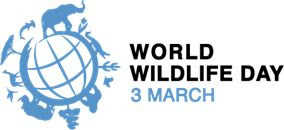World Wildlife Day 2021: Forests And Livelihoods - Sustaining People And Planet
Celebrating the livelihoods of communities who rely on forests, and the value of these ecosystems for both wildlife and all of humanity

Covering nearly a third of the planet’s land surface, forests and woodlands are key pillars of human livelihoods and well-being. The largest areas of surviving old-growth forests (OGF) and forest habitats in Europe (outside of Russia) are found primarily in Romania, Ukraine, Slovakia and Bulgaria. They are home to Europe’s largest surviving large carnivore populations, as well as thousands of other species of flora and fauna. The ecosystem services and resources forests and woodlands provide, from filtering and storing freshwater to regulating the climate, are essential to people and to the economy. Central and Eastern Europe is experiencing increasing pressure on forests from both unsustainable legal and illegal logging, as well as the impacts of climate change. Just as in the Amazon and elsewhere, the fragmentation and destruction of forest habitats means that both animals and disease vectors are inadvertently coming into more frequent contact and conflict with humans.
“Fragmentation of wildlife habitat and forest destruction are not just an issue of the Global South”, says Irene Lucius, Regional Conservation Director, WWF Central and Eastern Europe. “Brown bears in the Carpathians, for example, are increasingly coming into conflict with people as wildlife corridors are being intersected by forest clear cuts, roads, or encroaching settlements. We need wild animals to stay within their natural habitats and play their regulating role here such as wolves who control wild boar and thereby the diseases they transmit, as shown in the case of Classical Swine Fever in Slovakia. The new EU Biodiversity Strategy 2030 calls for increased efforts to restore and maintain Europe's natural capital. Some of the economic recovery funds under development must be invested here for the benefit of people and nature.”
To date, 350,000 ha of old-growth and virgin forests have been identified in Central and Southeastern Europe. Of these, only 280,000 ha are legally protected. Remaining unprotected old-growth forests are at risk of being felled due to a deficiency in legal and economic incentives not to log them, while those already under protection are facing pressures to be harvested as well.
Valuing Forests and Wildlife: Rewilding Bison in the Southern Carpathians
The Southwestern Carpathians is considered as one of the largest wilderness areas in Europe, covering more than 1.4 million ha in the southwestern part of Romania. The area contains a mosaic of landscapes, with intact beech forest emerging into upland spruce forest with ancient cultural alpine pastures on mountain ridges and summits. Illegal logging, human-generated fires and habitat fragmentation are among the threats.
WWF-Romania and Rewilding Europe have been working with local communities to address these issues by reintroducing European bison in the wild. This keystone species shapes the landscape, creating habitat for insects, amphibians, herbivores and birds. Bison act as natural firefighters by clearing shrubs and maintaining open areas in forests which can prevent fire dispersal. We are also working towards educating the locals to stop catastrophic fires and restore burnt forest areas.
We Must Act Now to Preserve Forests, and the Wildlife and People that Depend on Them
Finding ways of ensuring that Central and Eastern Europe’s old-growth and other natural forests remain intact must be a key element of the EU Green Deal. WWF Central and Eastern Europe (WWF-CEE) calls on national and local authorities, the European Commission and the private sector to:
- develop and promote sustainable compensation mechanisms (including Payments for Ecosystem Services schemes) for owners of OGF covered by national, European and private
- sector funds as both the public and companies are beneficiaries of forest ecosystem services;
- accelerate the process to include identified old-growth forests in the “National Virgin and Quasi-Virgin Forest Catalogue” in Romania, and granting such areas in Ukraine and Slovakia official protected status by regional and/or national governing bodies;
- develop forest-based local green business and investment schemes to support sustainable development and the well-being of local communities owning such forests and living from the use of this natural resource; and
- identify and promote better alternatives to firewood for heating in rural and remote areas where these alternatives usually do not exist, aiming at reducing the pressures on these forests. This is particularly relevant for Ukraine, Romania and Bulgaria.
The effort to preserve our European natural heritage must be supported by all Europe and equally shared by all beneficiaries of their services, not only by the countries that host them.
This is a key moment for governments to stop forest destruction and work towards preserving and restoring ecosystems, biodiversity, and ultimately the health of people and planet.
We need world leaders to act now and #BuildBackBetter:
Change how we produce food to stop deforestation
Stop exploitation of wildlife
Stabilise the climate


 Save The Children: One Week On From Devastating Earthquake, Families In Vanuatu Still Terrified
Save The Children: One Week On From Devastating Earthquake, Families In Vanuatu Still Terrified UN News: Over 207 Executed In Port-Au-Prince Massacre - UN Report
UN News: Over 207 Executed In Port-Au-Prince Massacre - UN Report Sonali Kolhatkar, IMI: What Is Our Collective Solution To Health Injustice?
Sonali Kolhatkar, IMI: What Is Our Collective Solution To Health Injustice? Cook Islands Investment Incorporation: Government Partners With Communities To Improve Safety Shelters
Cook Islands Investment Incorporation: Government Partners With Communities To Improve Safety Shelters Richard D. Wolff, IMI: Political Economy Contradictions As We Lurch Into 2025
Richard D. Wolff, IMI: Political Economy Contradictions As We Lurch Into 2025 People with Disability Australia - PWDA: CMHA And PWDA Demand Justice And Urgent Reform Following Death Of Simon Cartwright At Silverwater Jail
People with Disability Australia - PWDA: CMHA And PWDA Demand Justice And Urgent Reform Following Death Of Simon Cartwright At Silverwater Jail